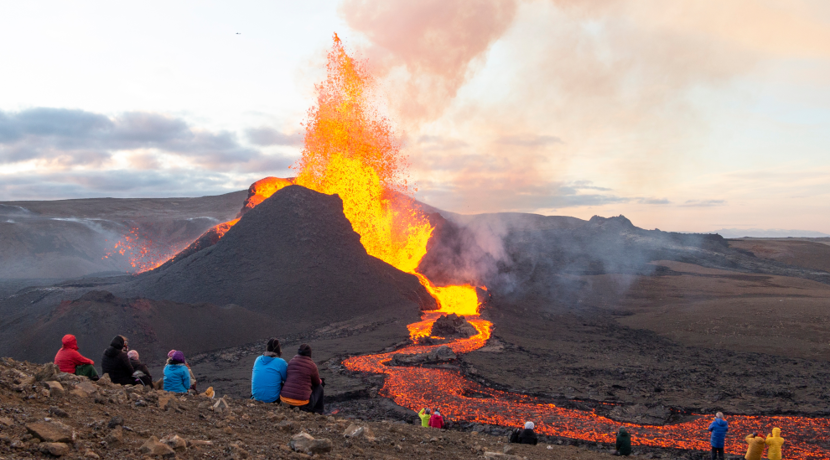Minor explosions
Robert Klatt
Current climate models have greatly underestimated the cooling effects of volcanic eruptions, mainly because small eruptions were not taken into account. Because the cooling effect is temporary, it cannot stop global warming.
Cambridge (England). Volcanoes have a huge impact on the global climate system. When the volcano erupts, it emits sulfur gases that condense into tiny particles called aerosols in the upper atmosphere. These aerosols are able to reflect sunlight back into space. During particularly massive volcanic eruptions, such as the Hunga Tonga-Hunga Ha’apai (HTHH) eruption, which produced the strongest thunderstorm on record, the volume of aerosols can be so large that it results in a global cooling of temperatures. However, such large eruptions occur only a few times per century, while small eruptions occur almost annually.
Climate forecasts, such as the Sixth Assessment Report (AR6) of the United Nations (UN) Intergovernmental Panel on Climate Change (IPCC), assume that volcanic activity from 2015 to 2100 will be at the same level as from 1850 to 2014. Study Cambridge University By researchers led by Mai Shim it now appears that the effects of low-intensity eruptions are negligible.
“Compared to the greenhouse gases emitted by human activities, the impact of volcanoes on the global climate is relatively small. However, it is important to include them in climate models so that we can accurately assess future temperature changes.”
Ice core analysis and satellite data
According to the publication in Geophysical Research Letters The researchers developed different scenarios for future volcanic activity based on the ice core and satellite data. They chose scenarios representing low, medium and high levels of volcanic activity and then ran climate simulations using the UK Earth System Model.
Their simulations indicate that the effects of volcanic eruptions on climate, including surface temperature, sea level, and the extent of sea ice, are underestimated. The reason for this lies in the fact that current climate projections greatly underestimate the likely future extent of volcanic activity.
Volcanic influence greatly minimized
According to the study’s medium-term future scenario, the impact of volcanoes on the atmosphere is underestimated in climate predictions by up to 50 percent. This is largely due to the effects of low-intensity eruptions.
We found that not only is volcanic forcing underestimated, but less intense eruptions are actually responsible for up to half of the volcanic forcing. Individually, these low-intensity eruptions may not have a measurable effect, but taken together, their impact is significant. I was surprised to see how significant these low-intensity eruptions are. We knew it had an impact, but we didn’t know it was that big.”
Although the cooling effect of volcanoes is underestimated in climate projections, the researchers stress that it cannot be compared to human-caused carbon emissions.
Upper stratospheric volcanic aerosols usually stay in the atmosphere for one to two years, while carbon dioxide stays for much longer. Even if we had a period of exceptionally high volcanic activity, our simulations show that this would not be enough to stop global warming. It’s like a passing cloud on a hot, sunny day: the cooling effect is temporary. “
Scientists believe that a full accounting of volcanic impacts could help improve the reliability of climate predictions. They are currently using their simulations to test whether future volcanic activity could interfere with the replenishment of the Antarctic ozone hole and thus maintain relatively high levels of harmful UV radiation at the Earth’s surface.
Geophysical Research Letters, doi: 10.1029/2023GL103743

